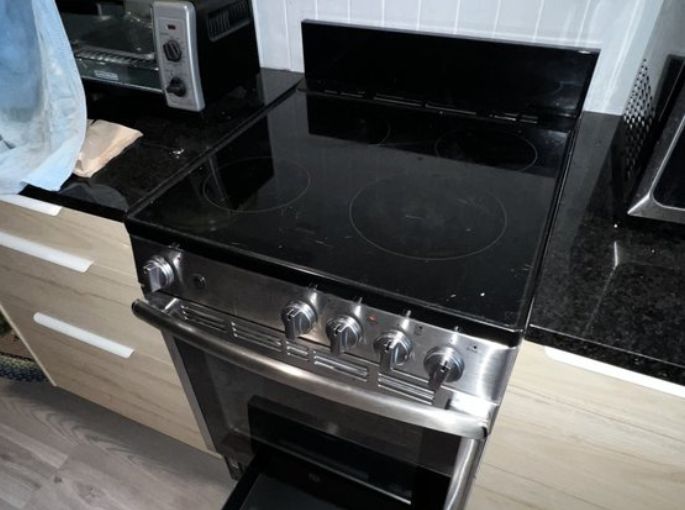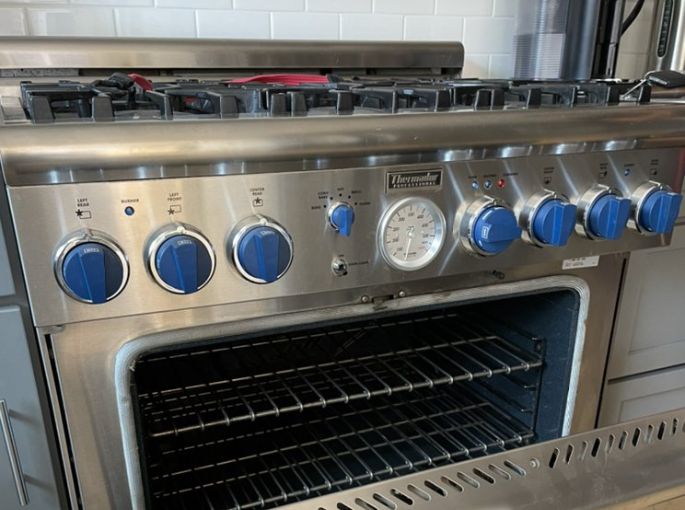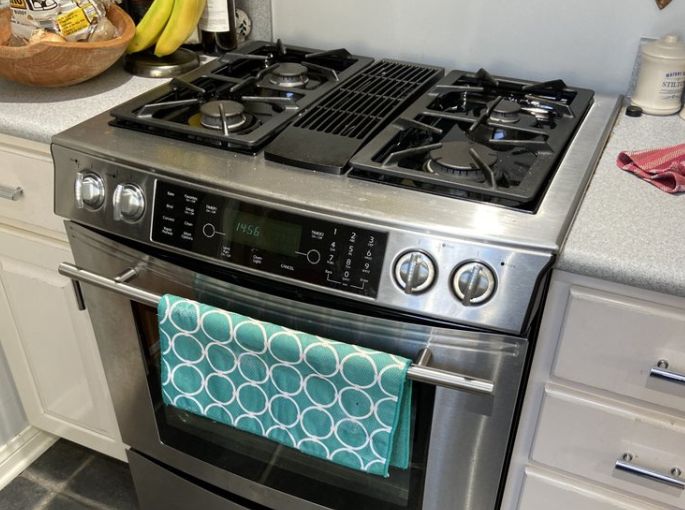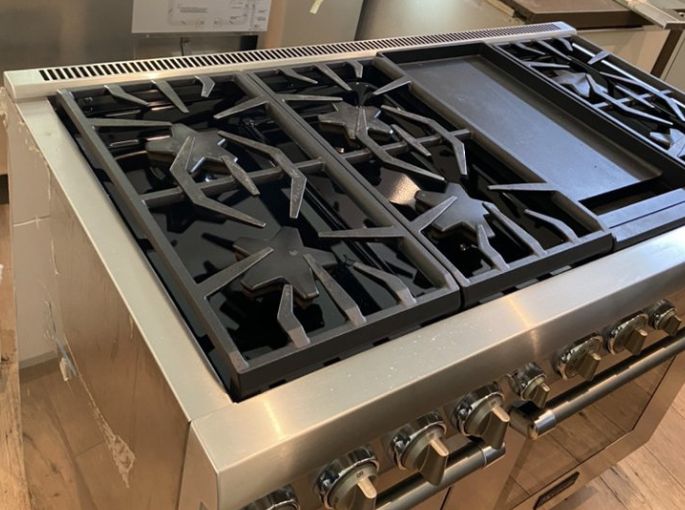



In the realm of kitchen appliances, the debate between gas and electric ovens has been ongoing for decades. Each type offers its own unique set of advantages and disadvantages, making the decision between top appliance brands a matter of personal preference and cooking style. But what about small brands, are they worth even looking at?…
Whether you’re a seasoned chef or an occasional home cook, choosing the right oven can significantly impact your culinary experience. In this article, we’ll delve into the comparison between gas and electric ovens, explore the market, and help you make an informed decision for your kitchen appliance.
Further we provide a comprehensive comparison between gas and electric ovens, explore the top appliance brands in the market as well as take a look into small brand’s core and help readers make an informed decision on the topic of ovens. With a focus on clarity, simplicity, and valuable information, it aims to provide you with actionable insights.
Understanding Gas Ovens:
Gas ovens have been a staple in kitchens for generations, prized for their instant heat and precise temperature control. Here are some key factors to compare whilst your decision:
Pros of Gas Ovens:
- Energy efficient. Gas there is often cheaper per unit of energy compared to electricity, resulting in lower monthly utility bills.
- Instant Heat.
- Moist Heat (Some gas ovens come equipped with features that allow for the introduction of moisture during the cooking process).
- Precise Temperature Control.
Cons of Gas Ovens:
- More Installation Requirements (they require a gas line).
- Potential Safety Risks (Gas leaks and carbon monoxide emissions).
- Limited Availability (In some areas, access to natural gas may be limited)
Exploring Electric Ovens:
Electric ovens, on the other hand, offer consistent and even heating throughout the cooking process. Here’s what you need to know:
Pros of Electric Ovens:
- Even Heating (Electric ovens provide consistent and even heating, resulting in evenly baked dishes without hot spots).
- Ease of Installation (They only require a standard electrical outlet).
- Safety Features.
Cons of Electric Ovens:
- Slower Heating.
- Drier Heat.
- Higher Energy Costs.
Top Oven Brands :
Opting for a reputable brand ensures peace of mind regarding quality, reliability, and customer satisfaction. Here’s a list of renowned world leaders and some explanations on why those names have earned their spots among the top.
- Samsung
- Maytag
- Whirlpool
- LG
- GE
- Kenmore
- Wolf
- Bosch
- KitchenAid
- Electrolux
These top appliance brands have earned their reputation through years of consistent quality and customer satisfaction. Whether you’re in Europe, Asia, or anywhere else in the world, these brands offer luxury, reliability, and innovation in home appliances.
In our list of top oven brands, we’ve considered factors such as performance, durability, and value for money to help you make an informed decision for your kitchen. However, it’s also worth considering smaller brands, as they may offer unique features and cater to specific needs.
Small Brands in World Oven Industry
With a growing trend for local production, many people prefer small manufacturers. In the vast and competitive world of oven manufacturing, there exist numerous small brands that contribute to the diversity and innovation. While they may not have the same level of recognition or market share as larger, more established companies. These smaller players often bring unique perspectives, specialized expertise, and niche offerings to the table.
Small brands in the oven industry are typically characterized by their focus on specific market segments or kitchen product categories. They may specialize in particular types of ovens such as countertop models, compact designs (which is especially valuable in Europe) or specialized ovens for baking or roasting specific types of food.
One of the advantages of small brands is their agility and ability to quickly adapt to changing consumer preferences and technological advancements. They often have the flexibility to experiment with new features, materials, and designs, allowing them to innovate and differentiate themselves in the luxury market of top appliance brands.
Moreover, small brands may prioritize aspects such as sustainability, craftsmanship, and customer service to set themselves apart from larger competitors. They may source materials locally, prioritize eco-friendly manufacturing processes, and offer personalized support to their customers, creating a loyal fan base and positive reputation within their kitchen niche.
While they may face challenges such as limited resources and brand recognition, they can leverage their agility, creativity, and passion for their craft to carve out a niche and thrive in the competitive oven industry. By focusing on quality, innovation, and customer satisfaction, these brands continue to contribute to the diverse and dynamic landscape of oven manufacturing worldwide.
Making Your Decision
Ultimately, the choice between a gas and electric oven depends on your individual preferences, cooking habits, and kitchen setup. If you need installation of new oven, please contact Appliances Fix&Care.
Before making your decision, carefully consider the pros and cons of each type of oven and explore top appliance brands to find the perfect fit for your kitchen. By weighing your options and conducting thorough research, you’ll be well-equipped to choose the right appliance that meets your cooking needs and enhances your culinary experience. The key is to choose the appliance that best suits your cooking style, budget, and lifestyle. With the wide range of options available in the market and the top appliance brands mentioned above, you’re sure to find the perfect oven to elevate your culinary creations and make every meal a success.
Conclusion
When choosing between a gas or electric oven, several factors should be taken into account. Considering these aspects is enough to make a well-informed decision and choose the oven that best meets your cooking needs, budget, and lifestyle.
- Budget Constraints. Assess your budget and determine how much you’re willing to spend on the initial purchase and ongoing usage costs of the oven.
- Cooking Preferences. If you bake frequently or rely on convection cooking methods, an electric oven with advanced baking features may be more suitable. On the other hand, if you prefer traditional techniques, a gas oven might be the better choice.
- Energy Costs. Compare the cost of natural gas and electricity in your region. Determine which fuel source is more affordable for powering your oven cheap in the long run.
- Cooking Efficiency. Evaluate the efficiency of a gas or electric oven in terms of heat distribution, cooking times, and use of energy.
- Maintenance Requirements: Consider the future maintenance needs.
- Kitchen Space: Take into account the available space in your kitchen to find which size would better fit your walls.
Gas or electric oven? The answer is yours. Both types offer their own set of advantages and disadvantages, making it essential to weigh your options carefully. Explore the top appliance brands, consider your kitchen setup, and make an informed choice that will enhance your culinary experience for years to come.
Read more: What Is Freezer Burn?